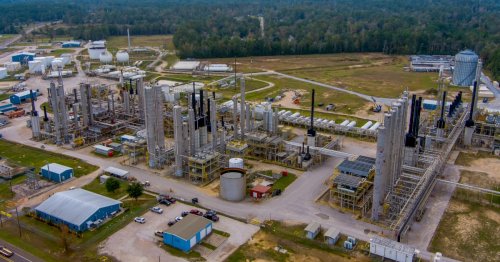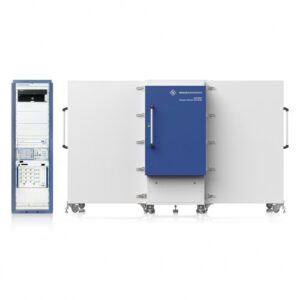The first-ever European Union rules to curb methane emissions from the energy sector have become legislation. The new EU Methane Emissions Reduction 2019/942 Ruling means gas, oil and coal industries in Europe must measure, monitor, report and verify their methane emissions and take action to reduce them.

The ruling became legislation on 27 May 2024.
Why introduce this ruling?
According to the EU’s Green House Gas (GHG) Inventory Report, more than 50% of all direct methane emissions from Europe’s energy sector result from unintentional release into the atmosphere. EU authorities believe this legislation and its focus on LDAR (leak detection and repair) will have a substantial impact on emissions mitigation and contribute towards climate goals.
Who does it affect?
The new announcement sets out a number of stipulations, such as the requirement for methane leak detection capabilities in:
• Upstream oil exploration and production, including all well types
• Fossil gas gathering, processing, transmission, distribution and underground storage, including liquefied natural gas terminals
• Underground and surface coal mines, including those that are closed or abandoned.
How to comply with the legislation
A number of timelines are now in place for different types of leak tests as part of a comprehensive LDAR programme.
With the exception of transmission and distribution networks, the ruling expects compressor stations, underground storage facilities, LNG terminals and regulating and metering stations to undertake a Type 1 LDAR survey every four months and a Type 2 survey every eight months. For valve stations the frequency is nine months (Type 1 LDAR) and 18 months (Type 2).
In transmission and distribution networks, compressor stations and regulating and metering stations must complete a Type 1 LDAR survey (>16 bar pressure) every four months and a Type 2 survey (>16 bar pressure) every eight months. For valve stations the frequency is nine months (Type 1 LDAR) and 18 months (Type 2). In addition, regulating and metering stations must perform a Type 2 LDAR (≤16 bar pressure) every nine months, while valve stations must do the same every 21 months.
How can FLIR help?
Type 1 LDAR surveys seek out larger leaks that have the greatest influence on the environment and generally require more frequent inspection. To help the oil, gas and coal industries undertake Type 1 LDAR surveys and comply with the new legislation, OGI (optical gas imaging) cameras from Teledyne FLIR provide the optimal way for owners, operators and service providers to detect fugitive gas emissions and quantitively measure the size of leaks.
FLIR OGI cameras have been independently tested and deemed compliant with the new EU Regulation 2019/942, Article 14 sensitivity standard for OGI equipment. The UK’s National Physical Laboratory (NPL) performed the tests, confirming that the FLIR G and GF-series OGI cameras for methane, hydrocarbon and VOC detection are capable of imaging and quantifying (QOGI – quantitative optical gas imaging) a Type 1 leak defined as a minimum detection limit and minimum leak threshold of 17 g/hr. Also available is the new FLIR ADGiLE™ automated solution to detect and locate methane leaks with continuous monitoring and advanced analytics. The system primarily focuses on midstream and high-concentration upstream methane applications.
OGI has a clear and fundamental role in the future of methane mitigation across Europe. Teledyne FLIR has been working with the EU for many years to help the industry leverage the latest technology in methane emissions detection and quantification.
For more information: https://www.flir.com/discover/industrial/european-union-methane-emissions-reduction-2019942-ruling-maintaining-compliance-requires-quantitative-optical-gas-imaging/
ABOUT FLIR, A TELEDYNE TECHNOLOGIES COMPANY
FLIR, a Teledyne Technologies company, is a world leader in intelligent sensing solutions for industrial applications with thousands of employees worldwide. Founded in 1978, the company creates advanced technologies to help professionals make better, faster decisions that save lives and livelihoods. For more information, please visit www.teledyneflir.com or follow @flir.



